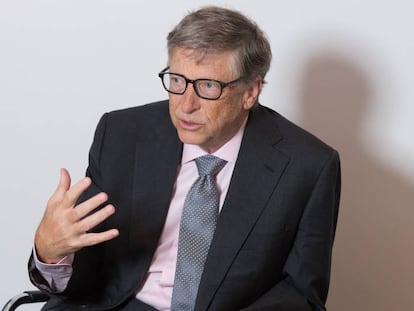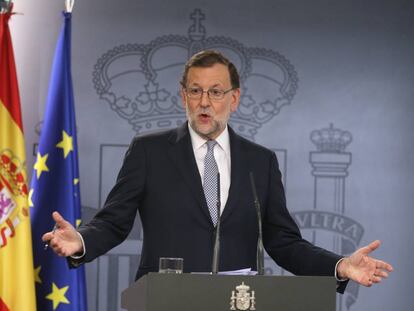From Trump to Podemos: just what is populism?
Brexit and the US elections have revived a confusing concept

Populism is proving to be a much-mentioned concept this year. A lot of people seem to know what it means, but it¡¯s not that clear. President Obama indulged in what he called a ¡°rant¡± about populism in June, suggesting somebody look it up in a dictionary, and then going on to say what he thought populism wasn¡¯t: ¡°Somebody who labels us versus them, or engages in rhetoric about how we¡¯re going to look after ourselves and take it to the other guy, that¡¯s not the definition of populism.¡±
President Obama was wrong. Most academics, such as Cas Mudde of University of Georgia, describe populism precisely in those terms: ¡°Populism is best defined as a thin-centered ideology that considers society to be ultimately separated into two homogeneous and antagonistic groups, ¡®the pure people¡¯ and ¡®the corrupt elite¡¯.¡±
The us versus them strategy is common to all varieties of populism
Similarly, Luis Ramiro of Leicester University says populism puts forward the idea that ¡°these two groups have irreconcilable differences, which leads to an emphasis on national or popular sovereignty.¡± The populist politician is thus alone in speaking for the people.
Under that definition, populism is an electoral instrument, or one of power. Its most successful use recently has been during Donald Trump¡¯s election campaign: ¡°Tomorrow¡¯s question is: who do you want to govern America, the corrupt political class or the people?¡± Trump asked the night before Americans went to the polls.
In Europe, Brexit in the United Kingdom and the rise of the Front National in France are other examples of populism. In southern Europe, two parties on the left, Syriza in Greece and Podemos in Spain, have highlighted this distinction between the people and the elites. ¡°Podemos is calling for a new political identity, an us, which is essential in politics, which is no longer about left or right but the people-oligarchy, up-down, citizen-caste,¡± says Jorge Lago, the head of the Instituto 25M think-tank, set up by Podemos, the anti-austerity party that has altered Spain¡¯s political balance over the last couple of years.
Populism shows whether it is more than just rhetoric when it comes to power
The us versus them strategy is common to all varieties of populism: ¡°What Trump and Podemos have in common is the claim that the elites have let people down and usurped democracy. In response, they say the people should ¡®reclaim the country¡¯ by voting for them,¡± says Duncan McDonnell, a lecturer at Griffith University in Brisbane. Podemos says this analysis is simplistic: ¡°From the start of the crisis we witnessed an unquestionable oligarchical process in the economy and politics. Thinking that for this reason it¡¯s populist is too hasty,¡± says Lago.
Therefore, it is possible to talk about populism in generic terms. Nevertheless, there are two big differences between the populism of the right and the left. Firstly, policies: ¡°What Podemos and the Front National have in common is that their attacks are directed against a liberal elite they believe are responsible for the problems. They differ in the type of problems they identify and emphasize, and in the solutions they offer,¡± says Benjamin Stanley, a lecturer at the SWPS University in Warsaw.
The second difference between left-wing and right-wing populism is how they each define the people: ¡°The way in which the people is constructed is the main difference between both types of populism,¡± says Belgian academic Chantal Mouffe, who, alongside Argentinean writer Ernesto Laclau, has developed a theory of populism that is often cited by Podemos. The people can be a civil or ethnic subject. The right tends to focus on ethnicity, hence its emphasis on immigration. The left is more inclusive. Its definition of ¡°us¡± is broader: ¡°Podemos says that populism is a form of rhetoric used to build a type of people,¡± says Guillem Vidal, a researcher at the European University Institute in Florence.
The idea that all adversaries belong to the corrupt elite delegitimizes them
And here is where further confusion about populism emerges: are there populist measures or are there only left-wing, right-wing, demagogical or stupid measures? The academics don¡¯t agree on this question. Recently, right-wing populists have stopped defending the free market in favor of protectionism, bringing them closer to left-wing populists. The movement can be populist but are its proposals populist? Ramiro says no: ¡°It¡¯s not clear if protectionism is left wing or right wing. Saying that something is a populist tax or foreign policy is stretching the concept too far. Demagoguery is not populism.¡±
Takis Pappas of the University of Macedonia, in Salonika, argues that populism is more than just electioneering: ¡°Populism is democratic illiberalism.¡± He believes the goal of populist politicians is not so much the division of society but to dismantle liberal democracy: ¡°Populist parties confront democratic institutions such as a free press, the division of powers, and particularly an independent judiciary.¡±
He cites Hugo Ch¨¢vez in Venezuela and Alberto Fujimori in Peru. If a leader is the people¡¯s sole representative, what need is there for an opposition or counterweights to power? The idea that all adversaries belong to the corrupt elite delegitimizes them: if populist rhetoric is taken to its extreme, ¡°it projects the majority¡¯s conception of politics in which the parties in power serve the people, even if this is against the law,¡± says Pappas.
Populism shows whether it is more than just rhetoric when it comes into power. Trump¡¯s rhetoric on the campaign trail has revealed a number of illiberal aspects. When he takes office he will be under the spotlight. That said, not all populisms imply illiberalism: ¡°There are populists who do not try to weaken the separation of powers or to interfere dangerously with the media,¡± says Ramiro.
English version by Nick Lyne.
Tu suscripci¨®n se est¨¢ usando en otro dispositivo
?Quieres a?adir otro usuario a tu suscripci¨®n?
Si contin¨²as leyendo en este dispositivo, no se podr¨¢ leer en el otro.
FlechaTu suscripci¨®n se est¨¢ usando en otro dispositivo y solo puedes acceder a EL PA?S desde un dispositivo a la vez.
Si quieres compartir tu cuenta, cambia tu suscripci¨®n a la modalidad Premium, as¨ª podr¨¢s a?adir otro usuario. Cada uno acceder¨¢ con su propia cuenta de email, lo que os permitir¨¢ personalizar vuestra experiencia en EL PA?S.
En el caso de no saber qui¨¦n est¨¢ usando tu cuenta, te recomendamos cambiar tu contrase?a aqu¨ª.
Si decides continuar compartiendo tu cuenta, este mensaje se mostrar¨¢ en tu dispositivo y en el de la otra persona que est¨¢ usando tu cuenta de forma indefinida, afectando a tu experiencia de lectura. Puedes consultar aqu¨ª los t¨¦rminos y condiciones de la suscripci¨®n digital.










































